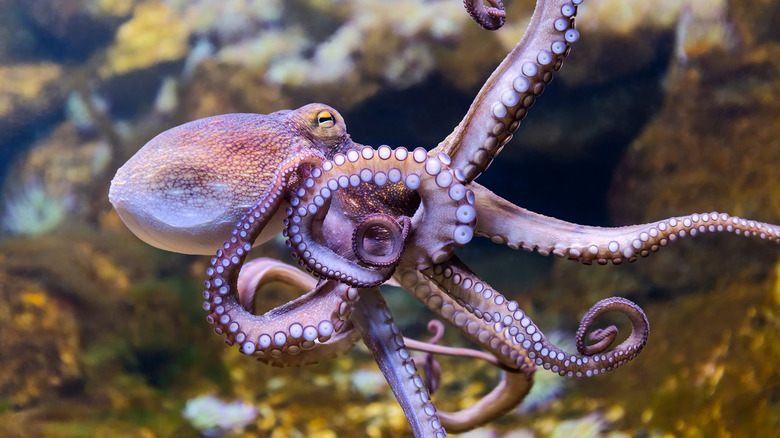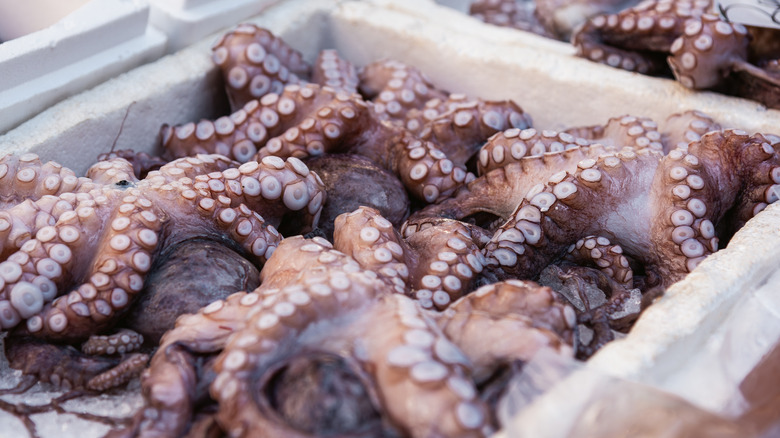Why Some Are Accusing The World's First Octopus Farm Of Cruelty
There are commercial farms for raising cows, fish, pigs, and pretty much any type of meat product out there, but until recently, octopus hasn't been one of them. Reuters reports that company Nueva Pescanova plans to open the world's first octopus farm. The plan is currently pending approval from local authorities, but the Spain-based company has already invested 65 million euros into the endeavor.
Though Nueva Pescanova's aquaculture director Roberto Romero describes it as "a global milestone," the first octopus farm could very well be the last. That's largely due to the fact that octopus are extremely intelligent and sentient beings. Many feel that all animals are, but for octopus, the argument is convincing enough for it to be officially recognized by U.K. law, BBC explains. Ultimately resulting in an amendment to the Animal Welfare (Sentience) Bill, a team of experts referenced over 300 scientific studies concluding the species was capable of experiencing a complex spectrum of emotions from joy to distress. That means the U.K. government and others may choose to ban imported farmed octopus.
Why haven't there been any octopus farms until now?
Eating octopus isn't a new thing, but the high level of consumer demand is. Euro News shares that new markets are developing a taste for it, with 10 times as many of the cephalopods harvested compared to the 1950s. As a result, octopus are being overfished, and that in turn has caused the price to rise. Farming octopus is the most obvious solution, and it's one that's being entertained not only by Nueva Pescanova in Spain, but also by seafood industries in Mexico and Japan, Reuters says.
The concept of breeding octopus may seem simple enough, but previous attempts to do so on a commercial scale have never been successful. Euro News explains that because octopus are intelligent, captivity typically has adverse effects. In the past, it has proven to lead to aggression, cannibalism, and self mutilation. Even if you take out the ethical argument, farming octopus results in high mortality rates, rendering all efforts useless. This evidence is enough of a red flag for animal rights activists and scientists, who criticize the practice for being not only unproductive but cruel.

